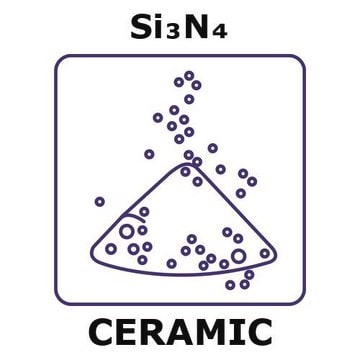GF90754858
Germanium
disks, 20mm, thickness 1.0mm, single crystal, 100%
Synonym(s):
Germanium, GE003100
Sign Into View Organizational & Contract Pricing
All Photos(2)
About This Item
Empirical Formula (Hill Notation):
Ge
CAS Number:
Molecular Weight:
72.64
MDL number:
UNSPSC Code:
12141716
PubChem Substance ID:
NACRES:
NA.23
Recommended Products
Assay
100%
form
disc
manufacturer/tradename
Goodfellow 907-548-58
resistivity
53 Ω-cm, 20°C
bp
2830 °C (lit.)
mp
937 °C (lit.)
density
5.35 g/mL at 25 °C (lit.)
SMILES string
[Ge]
InChI
1S/Ge
InChI key
GNPVGFCGXDBREM-UHFFFAOYSA-N
Looking for similar products? Visit Product Comparison Guide
General description
For updated SDS information please visit www.goodfellow.com.
Legal Information
Product of Goodfellow
Storage Class Code
13 - Non Combustible Solids
WGK
WGK 3
Flash Point(F)
Not applicable
Flash Point(C)
Not applicable
Certificates of Analysis (COA)
Search for Certificates of Analysis (COA) by entering the products Lot/Batch Number. Lot and Batch Numbers can be found on a product’s label following the words ‘Lot’ or ‘Batch’.
Already Own This Product?
Find documentation for the products that you have recently purchased in the Document Library.
R M Slawson et al.
Plasmid, 27(1), 72-79 (1992-01-01)
Germanium is an inert metal with no known biological function in prokaryotic or eukaryotic organisms. Its toxicity is low compared to that of silver. Germanium is accumulated in certain bacterial strains by either energy-independent passive binding or an energy-dependent mechanism.
A Takeuchi et al.
Nephron, 60(4), 436-442 (1992-01-01)
A 55-year-old woman was admitted to our hospital, complaining of general malaise, muscular weakness, anorexia and weight loss. She had a history of ingesting of a certain germanium (Ge) compound over the preceding 19 months, with a total dose of
A G Schauss
Biological trace element research, 29(3), 267-280 (1991-06-01)
There is no known biological requirement for germanium (Ge), germanates, or any organogermanium compound. Ge deficiency has not been demonstrated in any animal. The estimated average dietary intake of Ge in humans is 1.5 mg/d. Ge is widely distributed in
Silvie Svarcová et al.
Spectrochimica acta. Part A, Molecular and biomolecular spectroscopy, 132, 514-525 (2014-06-04)
An unambiguous identification of pigments in paint layers of works of art forms a substantial part of the description of a painting technique, which is essential for the evaluation of the work of art including determination of the period and/or
Rackel Reis et al.
ACS applied materials & interfaces, 7(27), 14644-14653 (2015-06-18)
Thin-film composite membranes, primarily based on poly(amide) (PA) semipermeable materials, are nowadays the dominant technology used in pressure driven water desalination systems. Despite offering superior water permeation and salt selectivity, their surface properties, such as their charge and roughness, cannot
Our team of scientists has experience in all areas of research including Life Science, Material Science, Chemical Synthesis, Chromatography, Analytical and many others.
Contact Technical Service





